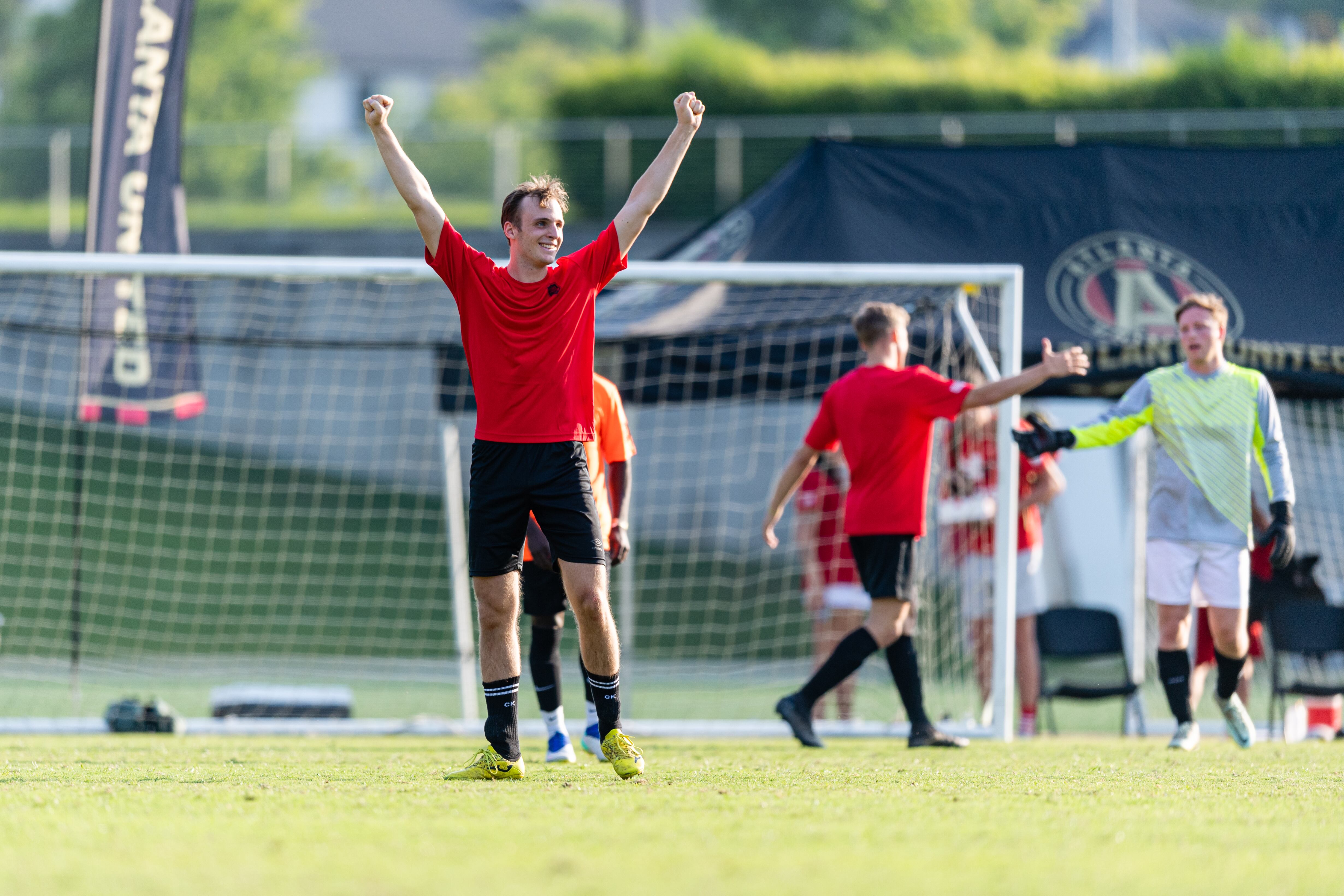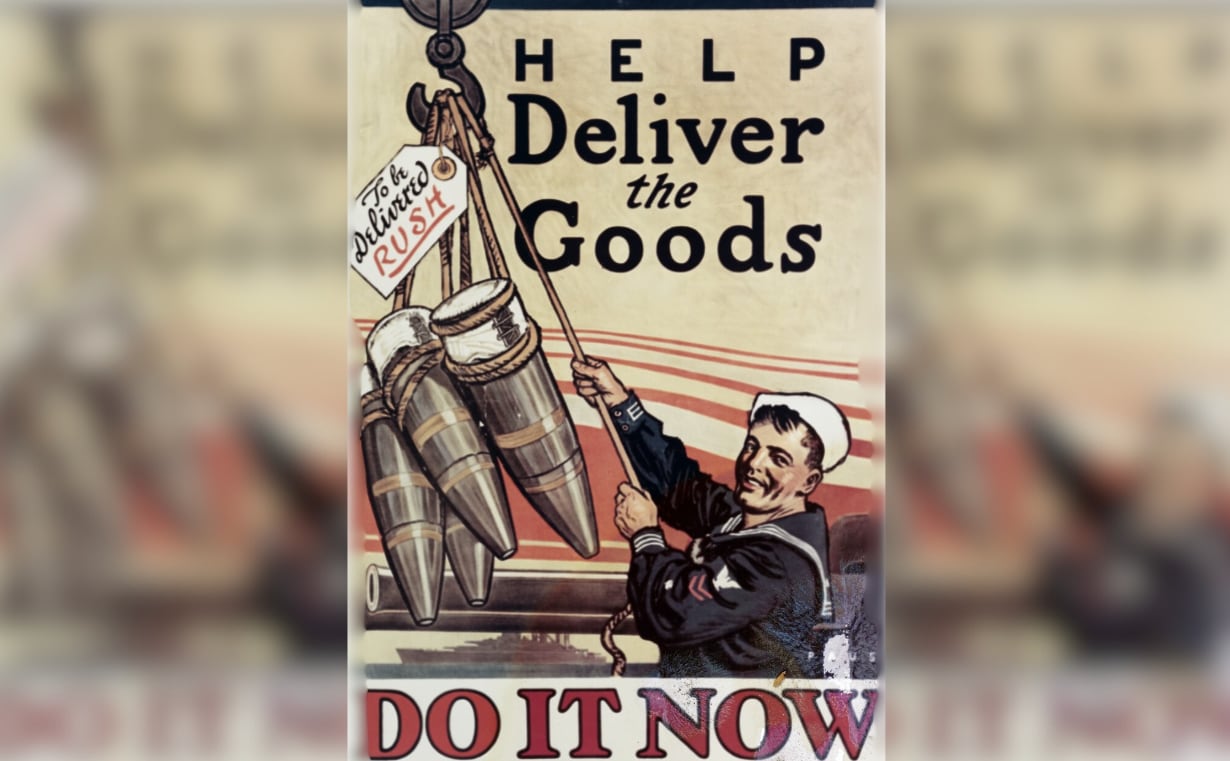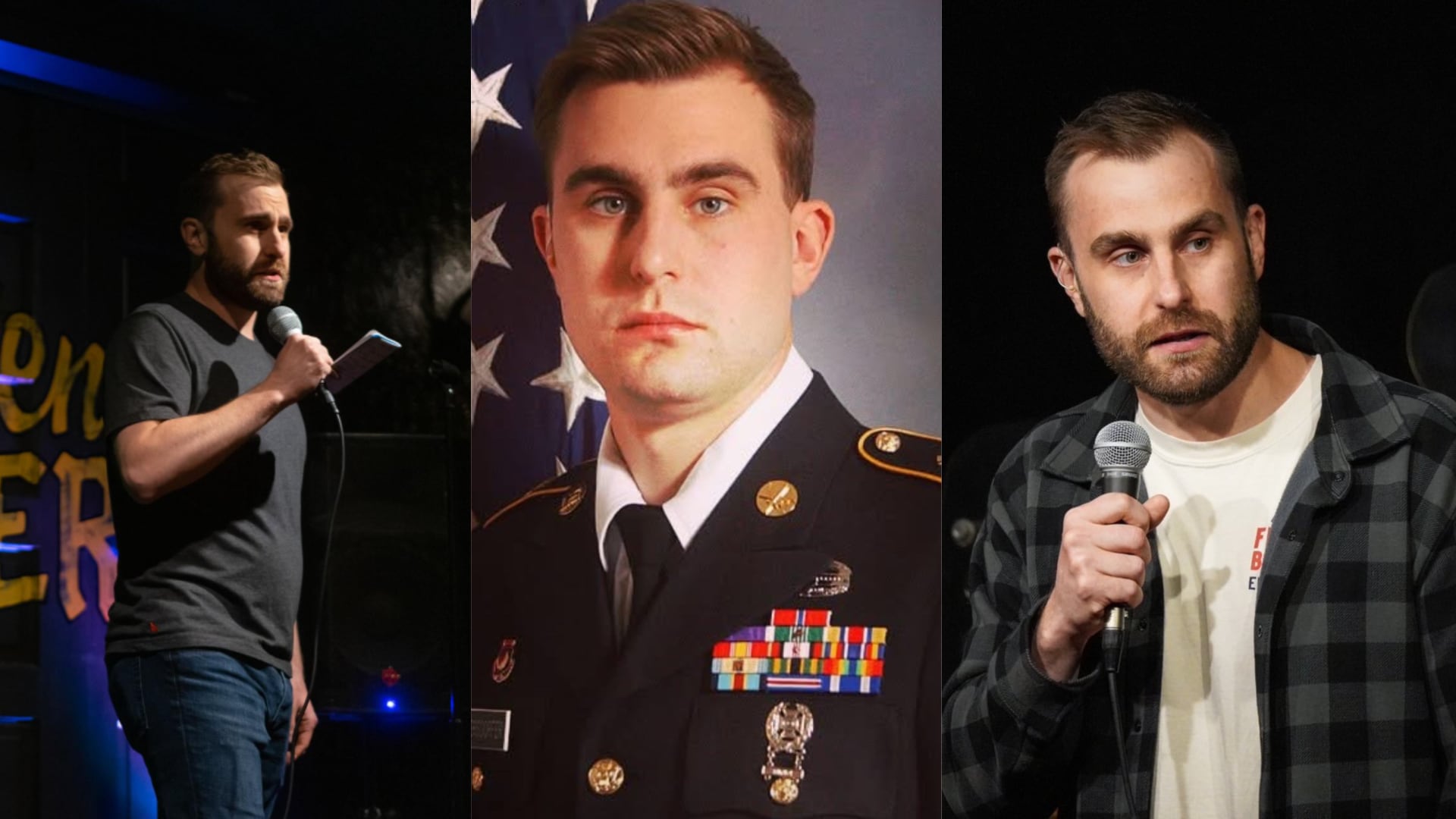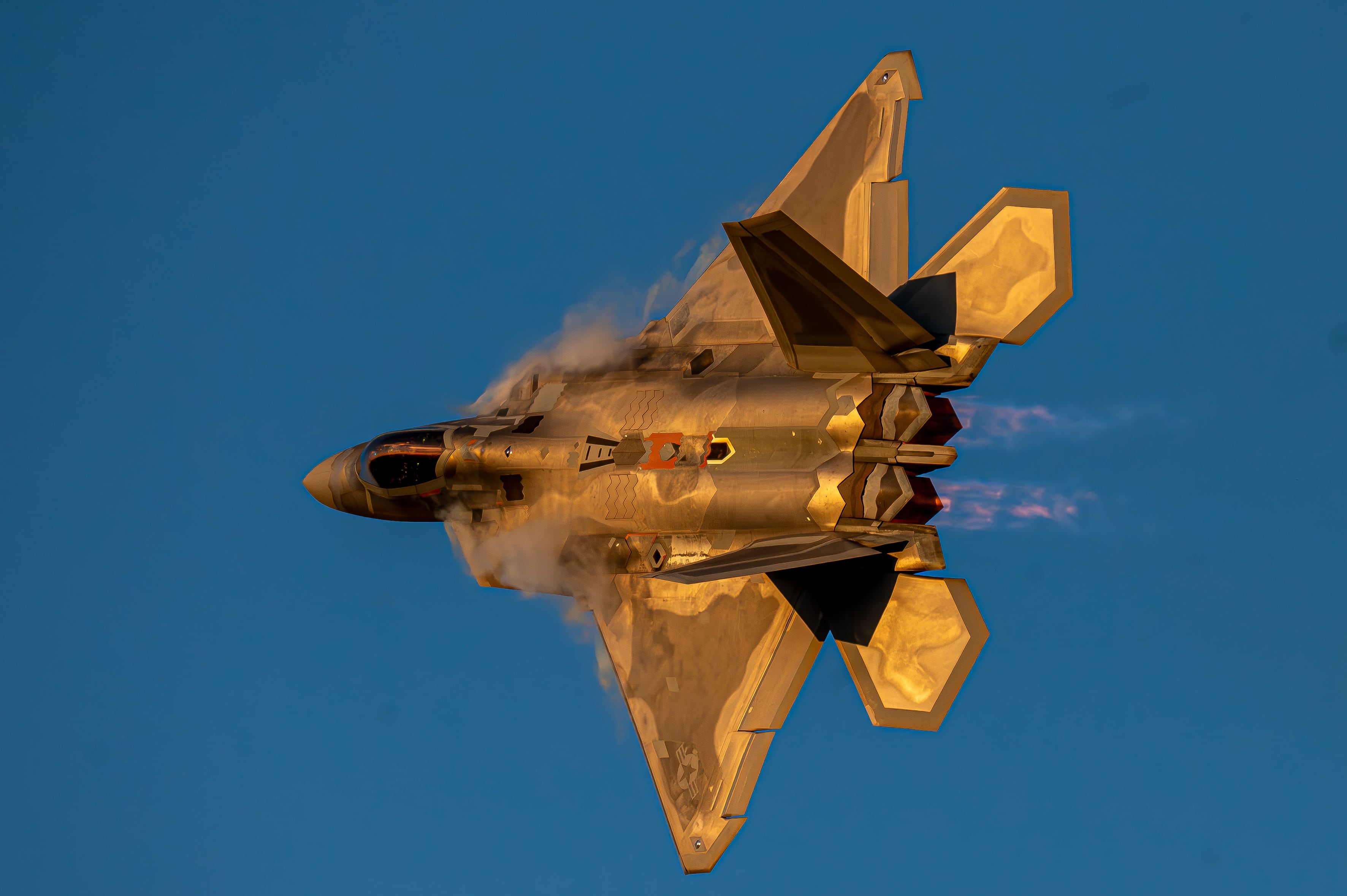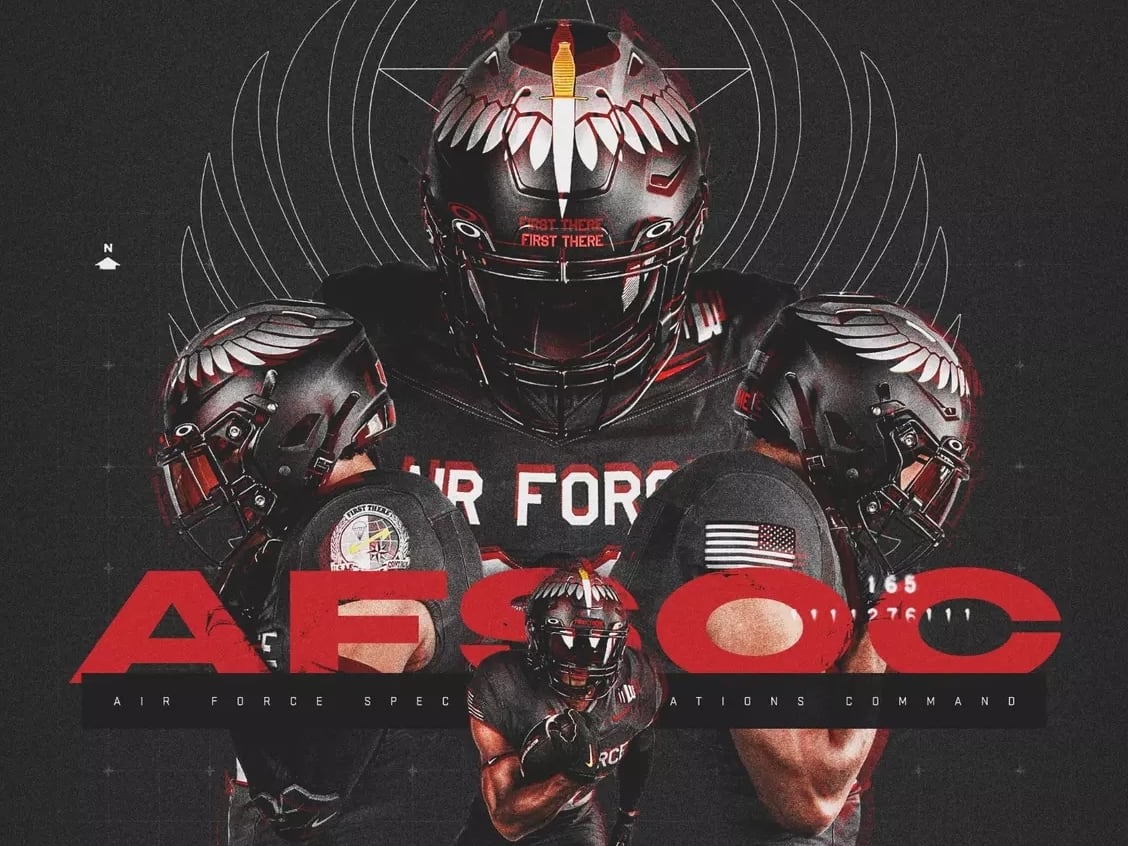MARIETTA, Ga. — Memory is imprecise, even under the friendliest of conditions.
And on Saturday, beneath the sweltering afternoon sun, absent the benefit of even a single cloud’s shade, the conditions were riper for retaliation than for recall at the training facility for Atlanta United FC, a Major League Soccer club.
It wasn’t initially clear what set off the confrontation amid the in-state rivalry match between the rough-hewn infantrymen of Fort Moore and the airmen of Robins Air Force Base, but the aftermath was impossible to miss. A whistle blew to break up a scuffle as an airman shoved a soldier, and players and spectators of both sides screamed for sanction. Referee Mike Leone resolutely flashed a pair of yellow cards, formally placing the troops on notice for their behavior.
But what started it all? Conflicting accounts emerged in the incident’s wake, but each had one thing in common: a soldier struck an airman. But where? How? Why? The fog of war, that Clausewitzian curse, rolls across more than just the battlefield, it seems.
One of the match’s spectators, who works as a broadcaster for the soccer club, said he thought it started when a soldier kicked the airman. He wasn’t certain, he cautioned — his attention was split between the Moore-Robins match and the adjacent one between two veterans service organizations, just two of the many matches that the club hosted for its annual Stars Stripes and Soccer Cup.
Another bystander said he thought he’d seen a punch thrown.
An airman’s significant other claimed she’d seen the whole thing. She described an improbable scene.
“One of the Army guys was on his hands and knees,” she explained from her camping chair, with her arms outstretched in demonstration. “And he donkey-kicked one of our [Air Force] guys in the groin.”
Was the so-called “donkey kick” intentional? A chorus of Air Force spouses argued it was a purposeful groin-kicking. In their eyes, which were well-attuned from attending the team’s weekly intramural matches on base, the ensuing shoving was justified.
The infantrymen, when later asked about the incident, laughed at the dependents’ declaration. They said that sometimes “weird things” happen near the net. Occam’s razor holds that purposefully donkey-kicking an opponent in the groin takes at least one more conscious thought than a competitor has to spare, after all.
Leone, the referee, agreed with the soldiers when approached by Army Times as he sought a refreshing sports drink between matches.
“The kick was incidental,” Leone said as sweat dripped from his long, scraggly goatee. The experienced official was more concerned with the retaliation, noting that he rarely had to issue yellow cards for such behavior when he officiates semi-professional matches.
The ref reflected for a moment, then added, “The problem with adult men playing soccer is that they take it too seriously.”
Yet that same competitive spirit sustains events like Saturday’s tournament, and the players cared about representing their corner of the military well.
The Robins airmen were both the tournament’s inaugural and defending champions and the only interruption to their reign came in 2021 when the infantrymen from Moore defeated them to take the cup.
But this year the competition was tough. After the Moore-Robins match ended in a draw, an exhausted airman approached by Army Times lamented, “The thing about these [Moore] guys is that they’re beefy.”
After the round-robin phase of the tournament was complete, the Robins airmen learned they wouldn’t have a chance to defend their crown. Fort Gordon’s team, another in-state contender, didn’t make the championship either, nor did Shaw Air Force Base’s winless squad, who traveled from South Carolina for little more than a free boxed lunch for dinner and bittersweet memories.
An all-pilot team from Fort Novosel, Alabama, was in first place after the preliminary rounds. In second? Fort Moore, who had the same win-loss record as Robins, but advanced to the final because they’d scored more goals.
The Novosel pilots were slighter in build than their stockier counterparts from Moore. They were also all officers and warrant officers, save for the enlisted Air Force veteran from the post’s Morale, Welfare and Recreation office who accompanied them as a player-coach. Melvin Allen said he enjoyed running the post’s intramural soccer league, describing it as an “important outlet” for those assigned to the Alabama post.
The Moore team, by contrast, was a brash bunch of enlisted men — including some who adopted the U.S. as their home then chose to serve it — led by a lone officer. The group plays together on Monday nights in a Columbus city recreation league, where the military bonds that keep the peace in on-post leagues elsewhere perhaps deepens the rift between them and other teams.
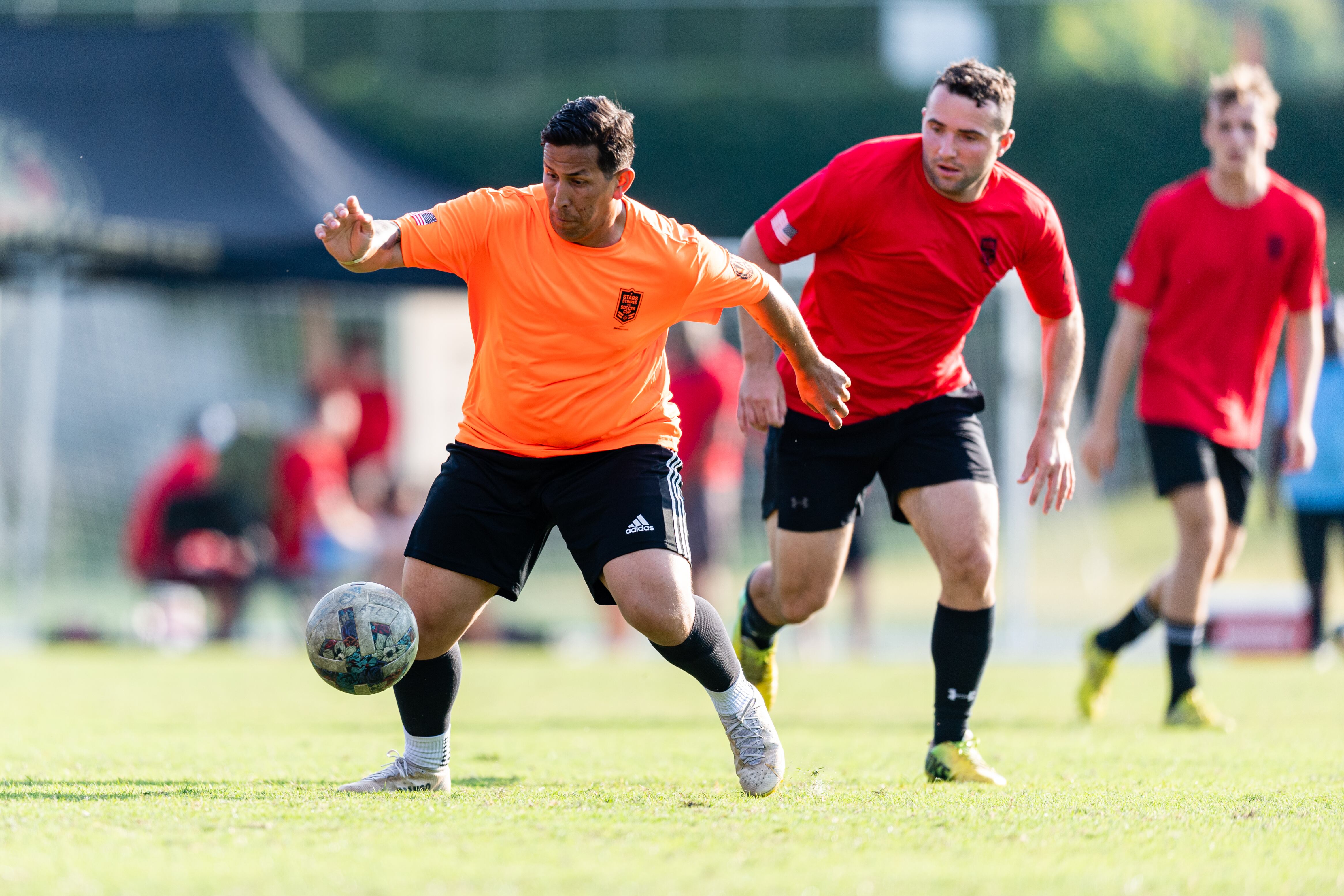
The Home of the Infantry’s squad played a powerful, physical brand of soccer underwritten by grit and opportunism. It contrasted with the skill and precision the pilots displayed as their star attacker dribbled in between defenders to conjure scoring chances seemingly out of thin air.
After the pool play match between the two teams, a Novosel pilot complained to Army Times that the infantrymen had pursued “more of a wrestling match than a soccer game.”
Asked about that characterization of their play, a sergeant from Moore’s side smiled and shrugged. “Good. They deserve it,” he said.
Deserved or not, the Moore style of play proved insufficient to reclaim the cup. The Novosel team won the final match 3-2, behind two early goals from their star attacker — but not before the referee again admonished the infantrymen during halftime to remember it was just a game.
Davis Winkie covers the Army for Military Times. He studied history at Vanderbilt and UNC-Chapel Hill, and served five years in the Army Guard. His investigations earned the Society of Professional Journalists' 2023 Sunshine Award and consecutive Military Reporters and Editors honors, among others. Davis was also a 2022 Livingston Awards finalist.
Tags:
Fort NovoselFort MooreAtlanta UnitedStars Stripes and Soccer CupMLS military appreciationMajor League SoccerShaw AFBRobins AFBFort GordonMilitary MWRIn Other News





